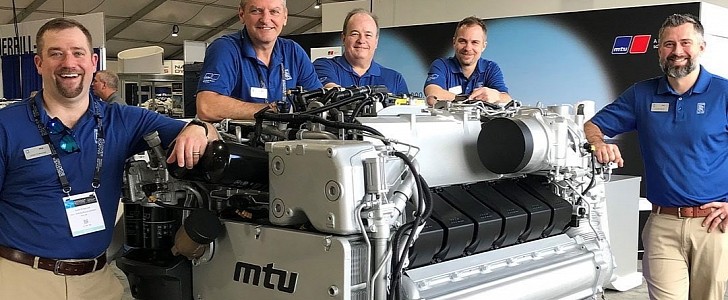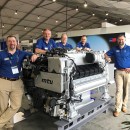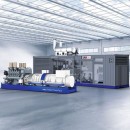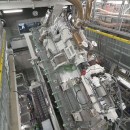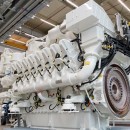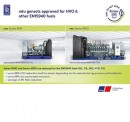Rolls-Royce achieved the goal of demonstrating that its most popular in-production engines, the mtu Series 1600 and Series 4000, can be used safely and efficiently with a variety of sustainable fuels.
In 2020, the mtu Series 4000 was hitting a milestone with the delivery of 3,000 units. Two years later, it scored another performance, obtaining approval from Rolls-Royce Power Systems to operate with alternative fuels. The extensive testing, including in the field, confirmed that the Series 4000 and Series 1600 diesel engines can replace conventional fuel with Hydrotreated Vegetable Oil (HVO), Biomass to Liquid (BtL), or Power to Liquid (PtL).
Out of these alternative fuels, HVO seems to be the most promising. According to Rolls-Royce, the mtu engines running on HVO demonstrated the same load capacity, maximum power, and fuel consumption as diesel engines. HVO also has better storage stability compared to biodiesel, in addition to being a drop-in fuel, meaning that no hardware or software modifications are required for its use.
Made from used cooking oil, animal fats, or vegetable waste, HVO can cut CO2 emissions by 90% if renewable energy is used for the entire process, from manufacturing to logistics. Plus, particulate emissions are reduced by 80%, and nitrogen oxide emissions by 8%. Pilot customers also confirmed these results.
The mtu engines have numerous applications in various industries, but the proven compatibility with sustainable fuels makes them particularly interesting for the energy industry and data center sector. Emergency power systems, for example, can also benefit from HVO’s extended stability.
Rolls-Royce is actively implementing several strategies for the goal of achieving 35% greenhouse gas savings by the end of the decade. These include a new generation of hydrogen engines and offering conventional engines that can run on sustainable fuels efficiently, including ones for aviation and the maritime industry.
Out of these alternative fuels, HVO seems to be the most promising. According to Rolls-Royce, the mtu engines running on HVO demonstrated the same load capacity, maximum power, and fuel consumption as diesel engines. HVO also has better storage stability compared to biodiesel, in addition to being a drop-in fuel, meaning that no hardware or software modifications are required for its use.
Made from used cooking oil, animal fats, or vegetable waste, HVO can cut CO2 emissions by 90% if renewable energy is used for the entire process, from manufacturing to logistics. Plus, particulate emissions are reduced by 80%, and nitrogen oxide emissions by 8%. Pilot customers also confirmed these results.
The mtu engines have numerous applications in various industries, but the proven compatibility with sustainable fuels makes them particularly interesting for the energy industry and data center sector. Emergency power systems, for example, can also benefit from HVO’s extended stability.
Rolls-Royce is actively implementing several strategies for the goal of achieving 35% greenhouse gas savings by the end of the decade. These include a new generation of hydrogen engines and offering conventional engines that can run on sustainable fuels efficiently, including ones for aviation and the maritime industry.
